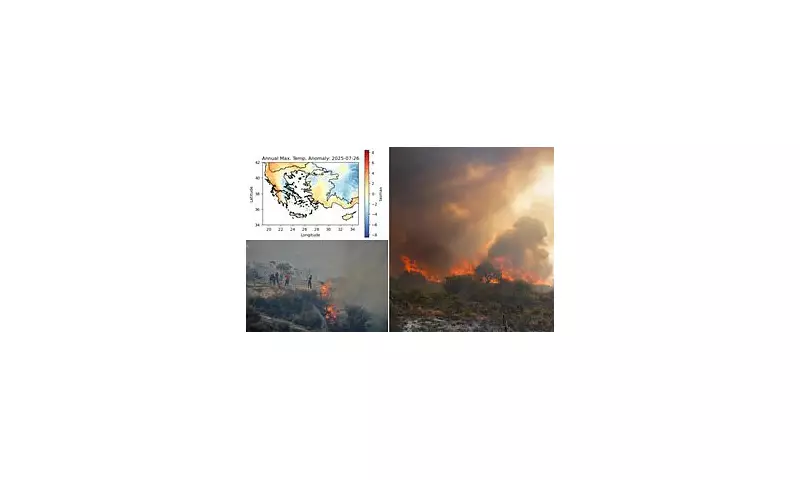
A stark and definitive scientific report has concluded that the relentless, climate change-driven heatwaves that baked Southern Europe this summer were the primary catalyst for the continent's devastating wildfire season. The research, conducted by the renowned World Weather Attribution group, delivers a sobering indictment of human influence on global weather patterns.
The study's findings are unequivocal: the scorching heat that made July the hottest month on record would have been "virtually impossible" without the overarching impact of man-made climate change. Scientists revealed that greenhouse gas emissions made the recent European heatwaves a staggering 2.5°C hotter than they would otherwise have been.
A Continent Ablaze
The consequences of this supercharged heat were felt catastrophically across the Mediterranean. Greece, in particular, suffered its largest single wildfire in modern European history, a monstrous blaze that tore through the region of Evros, decimating vast tracts of precious forest and farmland. The human cost was equally severe, with numerous fatalities reported across the affected nations.
Beyond the immediate destruction, the fires unleashed a secondary public health crisis. Major cities, including the capital Athens, were choked for days under a thick, toxic blanket of smoke and airborne pollutants, posing a severe risk to residents' respiratory health.
The Science of Attribution
This study represents a rapidly advancing field known as attribution science, which allows researchers to quantify the role of climate change in specific extreme weather events shortly after they occur. By comparing real-world data with sophisticated climate models of a world without human-induced warming, the team could pinpoint the exact influence of fossil fuel emissions.
The research serves as a dire warning that the extreme "fire weather" conditions experienced this summer are no longer a rare anomaly. Scientists caution that what was once an extreme event is rapidly becoming Europe's new summer reality, with such intense heatwaves now expected to occur roughly once every decade.
A Future Forged in Fire
Looking ahead, the prognosis is alarming. If global warming is allowed to reach 2°C above pre-industrial levels, these devastating heatwaves will occur approximately every two to five years. The study underscores an urgent and non-negotiable need for deep, rapid cuts in greenhouse gas emissions and a fundamental adaptation of fire management strategies to face this escalating threat.
The message from the scientific community is clear: the fingerprints of climate change are all over this summer's tragedies, and without immediate, decisive action, this fiery future will become the inevitable norm.





